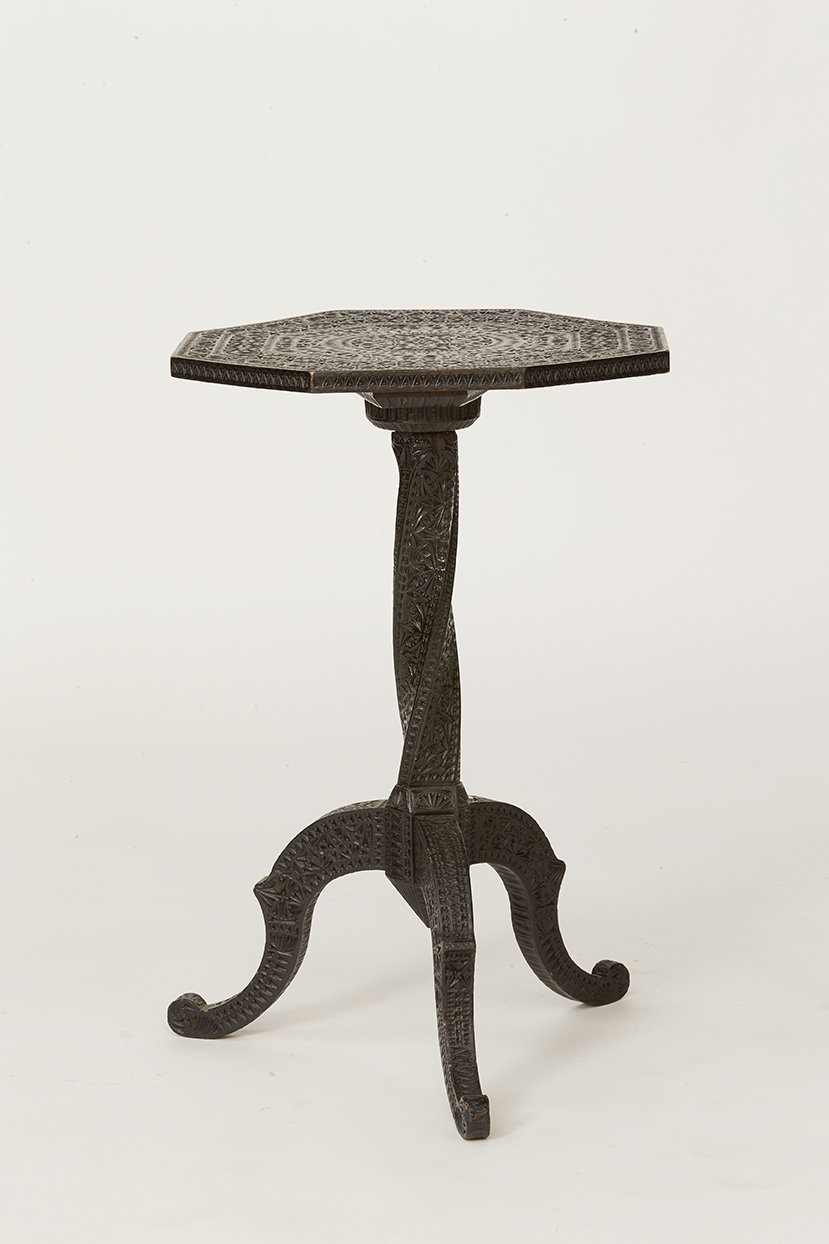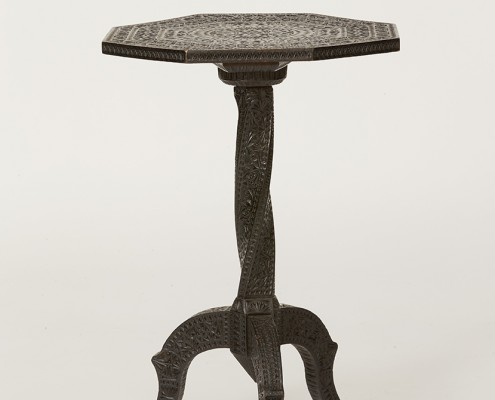Nagina, Pedestal Table, India, circa 1860/1870
This rare and precious Nagina pedestal table is composed of an octagonal top, a twisted barrel and a tripod base. This carved wooden piece of furniture is decorated with geometric and floral motifs.This furniture was made at the end of the 19th century in the town of Nagina, then known for its cabinet making workshops. This type of object executed by Muslims has an abstract ornamental repertoire, typical of a great sobriety of Nagina’s production. In addition to its exceptional decoration, it is important to note the twisted movement of the barrel, which is extremely complex to achieve from a technical point of view. This effect gives a dynamic dimension to the work, which once again proves the exception and rarity of this table.
Nagina, a town in the Bijnor district of the former British Colonial Empire (now Uttar Pradesh) is known for its high-quality ebony cabinetry made between the second half of the 19th and the beginning of the 20th century. The carved decoration of these pieces of furniture consisted mainly of floral and geometric motifs. However, there are sometimes finely carved inscriptions and poetry verses in Persian. Due to the hardness of the ebony, the sculptor works with wood in relief, the sculpture itself is placed on a perforated bottom. The high quality of these cabinetry pieces was subject to criticism from contemporaries, who were surprised that objects of such quality were manufactured so far from the raw materials used to make this furniture. The ebony wood used to make this type of furniture came from central India.





